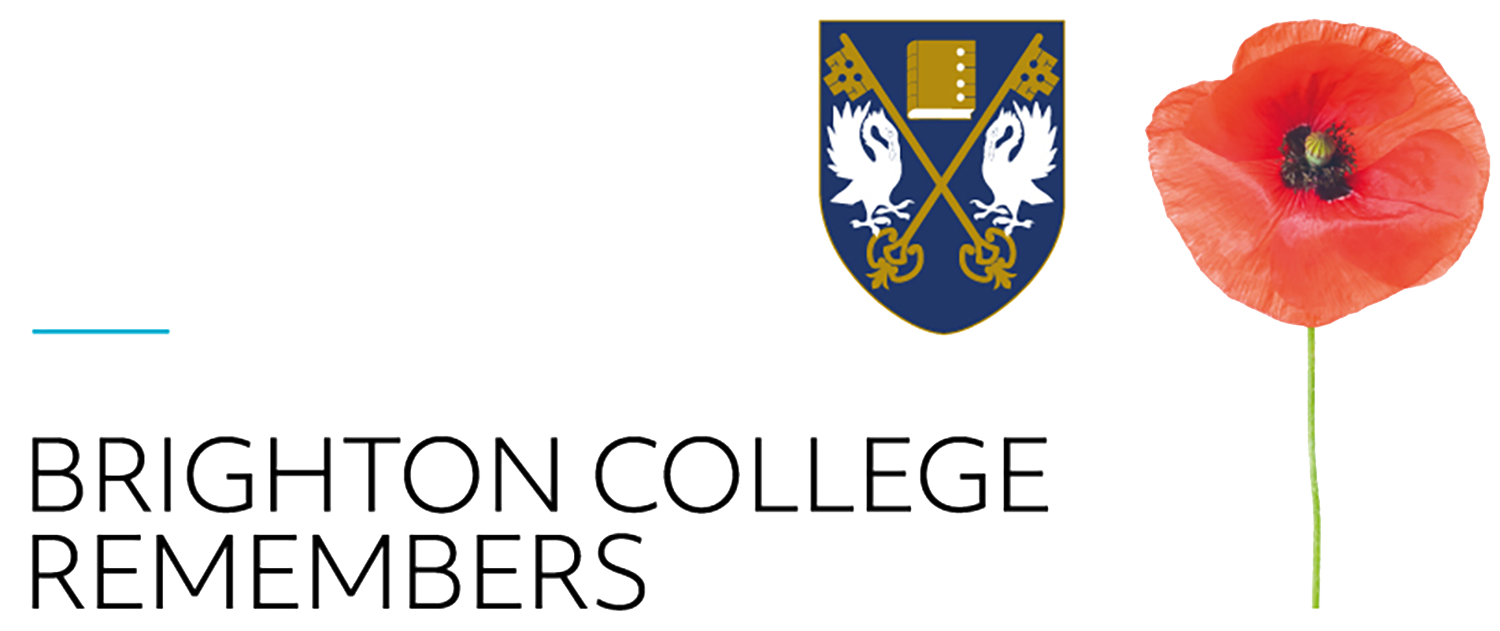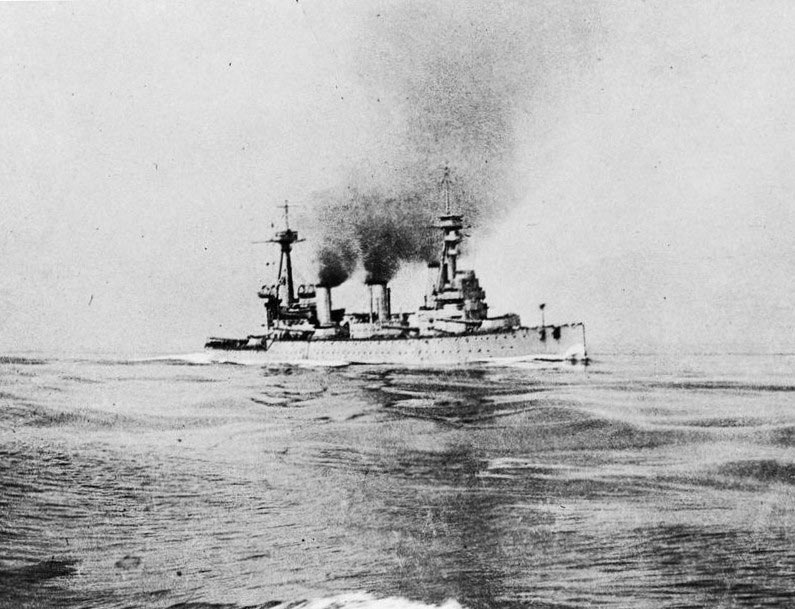The Battle of Jutland (31 May - 1 June 1916) was the largest naval battle of the First World War. It was the only time that the British and German fleets of 'dreadnought' battleships actually came to blows. Jutland was a confused and bloody action involving 250 ships and around 100,000 men. Initial encounters between Vice Admiral Beatty’s force (the British Battle Cruiser Fleet) and the German High Seas Fleet resulted in the loss of several ships. The Germans damaged Beatty’s flagship, HMS Lion, and sank HMS Indefatigable and HMS Queen Mary, both of which blew up when German shells hit their ammunition magazines.
All 57 officers and 960 seamen of the crew of the Indefatigable were lost – including Midshipmap William Llewelyn Griffith (Ha. 1905-10), aged 18.
Obituary Brightonian XV December, 1917 (printed alongside that of his brother)
W.L. Griffith (aged 18 years and 10 months) was the youngest son of Arthur Foster Griffith and Caroline Griffith, of 59 Montpellier Road, Brighton. From the Junior House, Brighton College, he went direct to Osborne, passing on to Dartmouth in due course two years later. He had just finished his six terms there when war broke out. He was at once mobilised in the H.M.S. Doris, from which he was soon afterwards transferred to H.M.S. Glory, the flagship on the Atlantic station, based on Halifax, N.S. Having a good knowledge of German, he acted as interpreter on the various prizes, and in decoding German wireless messages. In addition to general patrol work, the Glory was the flagship of the escort which convoyed the first Canadian contingent across the western half of the Atlantic, handing them over to a Home escort for the other half. In June, 1915, the German sea raiders having been effectually dealt with by the other sections of the fleet, the Glory went to the Eastern Mediterranean, where he saw exceptionally interesting work and active service. He was in command of a prize crew for a considerable time; he was also detailed to accompany the heads of the great Russian Monastery on Mt. Ethos, which monastery he was shown over- a rare experience. He took part in the Suvla Bay evacuation, where he was the last man off, having been landed during the last night in command of a Maxim gun crew to bring in stragglers, and guard one o the two roads constructed into the hills. In April, 1916, he returned to England on short leave, and was transferred to H.M.S. Indefatigable, which he joined on April 25th. She took part in the great Jutland fight, May 31st, and was blown up very early in the battle, only two of the crew surviving, both taken prisoners by the Germans. In his official certificates from the Glory he is called "a promising young officer".
He loved us and gave himself for us.
Although it failed to achieve the decisive victory each side hoped for, the Battle of Jutland confirmed British naval dominance and secured its control of shipping lanes, allowing Britain to implement the blockade that would contribute to Germany’s eventual defeat in 1918.


Died: May 31st 1916
Age at Death: 18